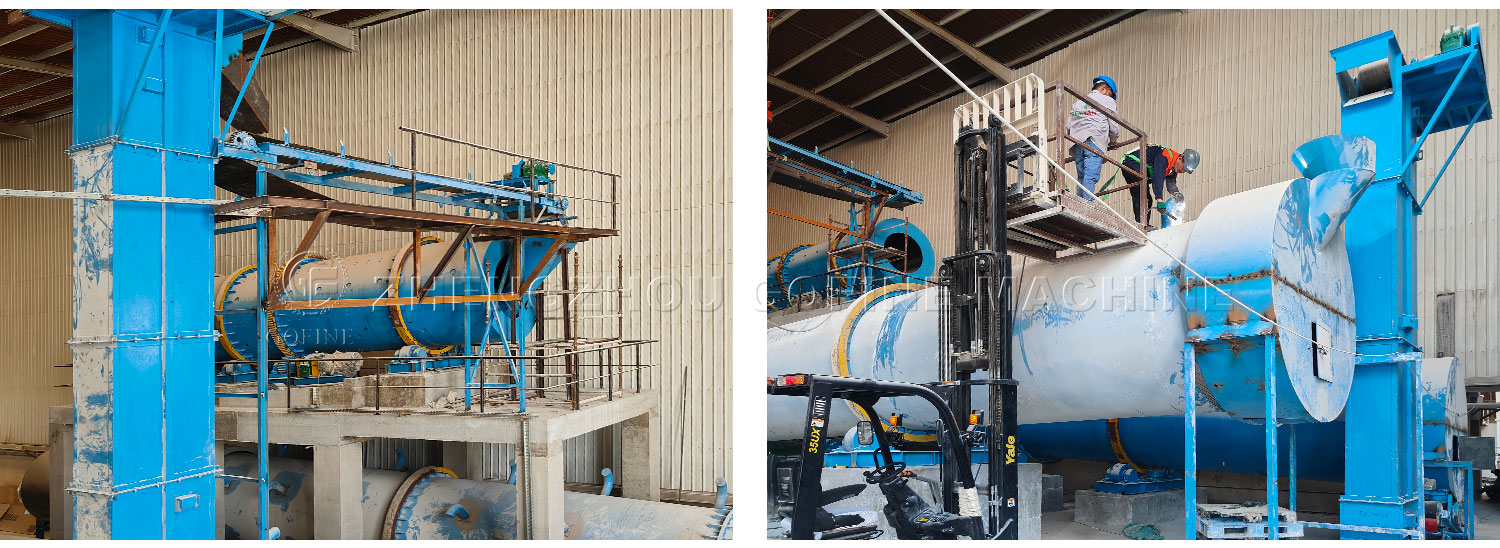
High performance fertilizer granules making machine
2025-06-18As you may already know, a fertilizer granulator is a processing machine used to convert fine powder materials into uniform granules. These granules are easier to store, transport, and apply to crops, making fertilizer granulation a crucial step in modern fertilizer production.
Depending on the raw materials and production requirements, fertilizer granulators can be classified into several types, including:
Disc (Pan) Granulator – Ideal for organic fertilizer and small-scale production
Rotary Drum Granulator – Suitable for large-scale NPK compound fertilizer plants
Double Roller Extrusion Granulator – Uses dry granulation with no drying process required
New Type Organic Fertilizer Granulator – Designed for high-moisture organic materials
Flat Die and Ring Die Pellet Machines – Commonly used for commercial organic pellet fertilizer
Each type of granulator has its own working principle and advantages. For example, wet granulation systems like disc and drum granulators use liquid binders to form granules, while dry granulation equipment such as the roller press granulator, compacts powder without any moisture addition.

According to the different raw materials, granulators are usually divided into organic fertilizer granulators and inorganic compound fertilizer granulators. For organic fertilizer granulators using cow dung, chicken manure, pig manure, horse manure, straw, biogas residue, distiller's grains, municipal sewage sludge (MSW) and other raw materials, commonly used models include disc granulators, roller gear granulators, flat die granulators, new hybrid granulators, etc. For the production of inorganic compound fertilizers such as diammonium phosphate (DAP), urea, potassium sulfate, potassium chloride, ammonium bicarbonate, nitramine, etc., commonly used models include roller extrusion granulators, disc granulators and drum granulators. As described in the article, some models can be used to produce a variety of fertilizers, and the granulation rate can reach more than 93%.ammonium chloride, ammonium sulfate, calcium superphosphate, calcium magnesium phosphate and nitrate of potash.
We previously participated in the renovation of an old fertilizer plant. After upgrading the drum granulator, the production capacity increased from 15t/h to 25t/h, and the energy consumption decreased by 12%.
The uniformity of the particles also plays an important role in the subsequent storage, transportation and application of fertilizers, including factors such as particle size distribution (such as the proportion of 2-4mm particles), sphericity (affecting fluidity), and surface smoothness (reducing moisture absorption and agglomeration). After our customers adopted the extrusion granulator, the particle uniformity (2-4mm proportion) increased from 80% to 93%, and the blockage rate of fertilizers in mechanized application decreased by 60%. This shows that high-uniformity particles can reduce fertilizer waste and improve the efficiency of mechanized fertilization.

Fertilizer Plant Solution
Based on data such as production capacity, particle quality, and energy consumption, we recommend different options for enterprises with different needs:
Large compound fertilizer plants: high-capacity drum granulators (such as 30 tons/hour).
Organic fertilizer/special fertilizer production: extrusion granulators (high uniformity and low dust) are preferred.
Small and medium-sized enterprises: disc granulators (cost-effective and easy to maintain).
Choosing the right granulator can significantly improve efficiency, reduce energy consumption, and optimize fertilizer quality. With the continuous development of intelligent control and energy-saving technology, fertilizer granulators will be more efficient and environmentally friendly in the future, helping to promote sustainable agricultural development.
